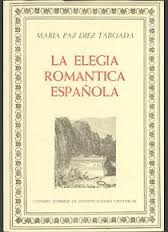

I cannot forgive the land – nor nothingness. I cannot forgive such a death when in love, You are rolling in the dirt far too early. I leave my heart, and resume my business. I weep at my misfortune, and at our attireĪnd I feel your passing more than I myself.Īnd without comfort from anyone and without any relief 1 Elegía a Ramón Sijé forma parte del poemario El rayo que no cesa, obra escrita por Miguel Hernández ,escritor perteneciente a la generación del 27.

There is no expanse greater than my pain, That by sweltering pain it aches at me until I breathe.Ī brutal thrust – I have brought you down

So great the grief, it clusters in my side, Of the ground that you occupy and fertilize, Quiero escarbar la tierra con los dientes, No hay extensión más grande que mi herida, For the first draft, I have translated everything literally (word for word), and in my next version plan to suitably enhance My Attempt into something that makes vague poetic sense (unlike how it reads presently!). I intend this translation to be merely a primitive first draft and would be open to any suggestion of changes, particularly if you feel that my chosen word in the English doesn’t do the Spanish meaning appropriate justice. The poem is exactly that – a lament over the death of one of his close friends, Ramon Sije. The poem that I have chosen to translate is written pre the Spanish Civil War, and is titled “Elegia”, which means “Elegy”. Subsequently, his punishment was reduced to 30 years in prison, but he contracted Tuberculosis shortly after, and died in 1942. Following the Republican surrender in 1939, Hernandez was captured and sentenced to death. Hernandez was born around 1910, and he wrote a great deal of poetry throughout the Spanish Civil War, campaigning for the Republicans. The place has some personal significance to me, as it is nearby to where I have spent every Easter and Summer holiday since I have been born. I chose a work by a poet from Orihuela, called Miguel Hernandez. Given that my family IS English in its entirety (as far as I can tell – though I’m still hopeful of finding some hint of Spanish), I decided to translate a poem from Spanish, using my (somewhat limited) knowledge of the language that I have acquired through both GCSE and the beginnings of IB. We were still in graduate school, which means that ours was a friendship that spanned more than two.We were asked to consult members of our family to see if they had the gift of a second language, or had a different first language to English, and if so, their help in translating a poem into English. as if struck by lightning, Ramn Sij, with whom I shared so much love.). It was at this point that I met Felix at one of the Kentucky Foreign Language Conferences. (In Orihuela, his town and mine, death has taken from me. In 1982 he arrived in the United States to begin graduate studies at the University of Kentucky, where his distinguished doctoral career unfolded under the direction and mentorship of the renowned colonialist Daniel Reedy. In the mid-70s, Felix moved to Cali, where he completed his Licenciatura at the Universidad del Valle while teaching school at the same time. Growing up as part of a large family in the Cauca Valley in western Colombia, one of the most beautiful areas of that vast and exuberant country, may have contributed to his enviable sense of calm, quiet sense of humor, and profound appreciation for the natural world. Alimentando lluvias, caracolas y rganos mi dolor sin instrumento, a las desalentadas amapolas dar tu corazn por alimento. both of which suffered an enormous loss with his passing.įelix, as he was known to his friends, was born in Cartago, Colombia. Synopsis (En Orihuela, su pueblo y el mo, se me ha muerto como del rayo Ramn Sij, a quien tanto quera) Yo quiero ser llorando el hortelano de la tierra que ocupas y estercolas, Read + compaero del alma, tan temprano. Quiero minar la tierra hasta encontrarte y besarte la noble calavera y desamordazarte y regresarte.

"como del rayo," as the Spanish poet Miguel Hernandez put it in his "Elegia a Ramon Sije." With this special edition of the South Atlantic Review we hope to honor the life and work of our dear friend, valued colleague, and ground-breaking scholar of colonial Latin American Studies and Colombian Studies. quiero apartar la tierra parte a parte a dentelladas secas y calientes. In May 2007 Hispanism lost a scholar of great intelligence, humility, and dedication when Alvaro Felix Bolanos passed away tragically and unexpectedly.


 0 kommentar(er)
0 kommentar(er)
